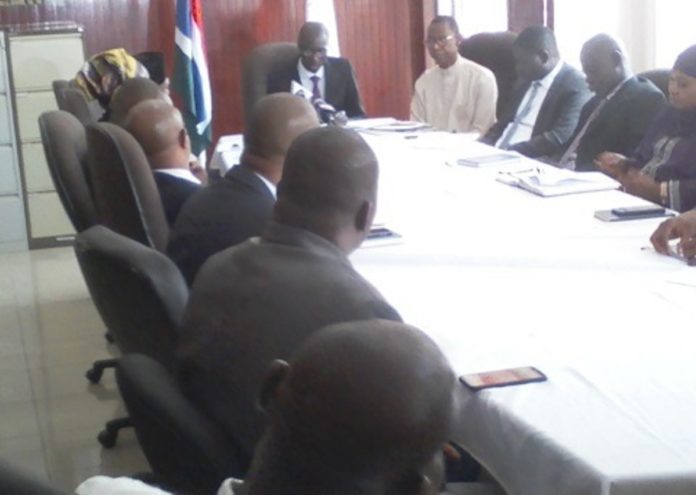By: Kebba AF Touray
The Governor of The Central Bank of The Gambia, Bakary Jammeh, has told journalists that the country’s stock of domestic debt as of May 2019 has increased from D31.2 billion in 2018 to 31.8 billion in 2019.
Jammeh disclosed this yesterday during the Monetary Policy Committee meeting of the country’s home of finance. This represents an increment of 39.2 percent of GDP in 2018 to 41.9 percent.
FISCAL OPERATIONS
The Governor said government fiscal operations for the first quarter this year showed a budget deficit of D800 million dalasis compared to 1 billion dalasis in the same period in 2018.
He continued, “government expenditure and net lending for the first three months of 2019, increased by 11.2 percent to 4.1 billion (5.2 percent GDP, whereas recurrent expenditure increased by 2.4 percent to 3.0 billion (3.8 percent GDP), compared to D2.6 billion (3.7 percent GDP) in the first quarter 0f 2018’.
GROWTH
He said growth is estimated to be 6.5 percent in 2018 compared to 4.8 in 2017, due largely to performance in the service sector including tourism and trade, financial services, insurance, transport and telecommunication.
“Agricultural production recovered from a contraction of 4.4 percent in 2017 to grow by 0.9 percent in 2018. However, climatic factors such as delayed rainfall, flooding and long dry spells continue to significantly affect crop yields, although early economic indicators show that growth will remain robust in 2019”, said Jammeh.
INFLATION
He said headline inflation accelerated to 6.9 percent in April 2019 from 6.1 percent in April 2018. This he said, reflects the marked increase in non-food inflation to an increased percentage of 8.7 to 6.0 during the period under review.
He continued “food inflation decelerated to 6.3 percent in April 2019 from 6.4 percent in the same period in 2018, reflecting the stability of the exchange rate and moderate global food prices”.
He said global food prices are expected to remain moderate, dalasi is projected to remain broadly stable, supported by market confidence and improved supply condition, whilst inflation expectations remain well anchored.
This he said, are meted with risks among them including low agricultural production, high debt level, and in view of the factors, the committee judged the current monetary policy stance to be appropriate and decided to maintain the Monetary Policy Rate at 12.5 percent.



















